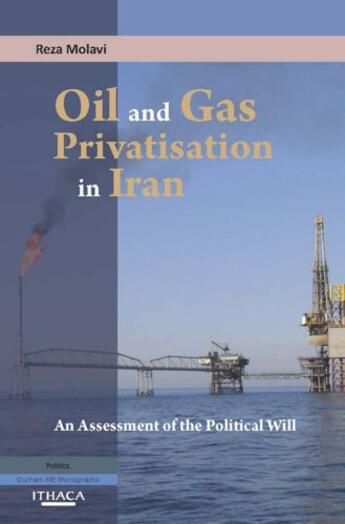Merci à toutes et à tous pour cette aventure collective
Passionné(e) de lecture ? Inscrivez-vous
gratuitement ou connectez-vous pour rejoindre la
communauté et bénéficier de toutes les fonctionnalités du site !

Iran is the fourth biggest producer of oil in the world, and its coastline stretches the entire length of the Persian Gulf, one of the world's most strategic waterways in terms of energy security. The establishment of the Islamic Republic after the 1979 Revolution paved the way for religious clerics to gain ultimate political control in Iran. The only area in which differences of opinion were tolerated was the role of the private and public sectors. In this book, Reza Molavi explores the potential for the privatisation of some of Iran's national institutions, in particular whether there is the political will to privatise the Iranian oil and gas industry. He begins by providing a theoretical basis for the determination of privatisation policy. Subsequently, he explores a set of international precedents and then presents an historical overview of Iran since World War II in order to build a context for the determinants of privatisation policy in Iran. Finally, the specific background, legal and institutional framework, and policy-maker perspectives are incorporated into the overall analysis. Together, these three approaches provide a cumulative understanding of the determinants of privatisation policy in Iran.
Il n'y a pas encore de discussion sur ce livre
Soyez le premier à en lancer une !

Merci à toutes et à tous pour cette aventure collective

Lara entame un stage en psychiatrie d’addictologie, en vue d’ouvrir ensuite une structure d’accueil pour jeunes en situation d’addiction au numérique...

Un douloureux passage à l'âge adulte, entre sensibilité et horreur...

Blanche vient de perdre son mari, Pierre, son autre elle-même. Un jour, elle rencontre Jules, un vieil homme amoureux des fleurs...